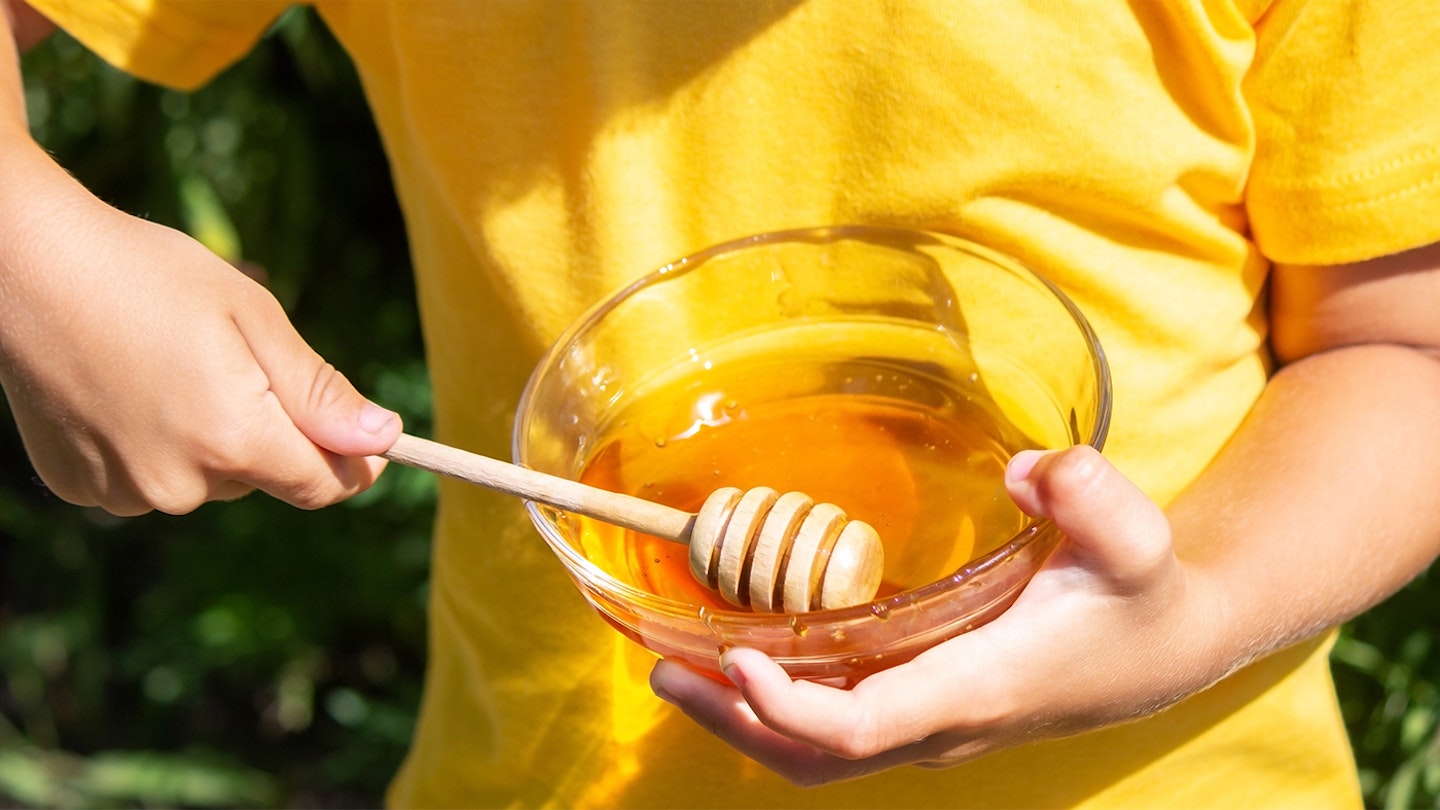Not only is honey deliciously sweet, it comes with plenty of heath benefits too, so you may be wondering - when can babies have honey? While it's a healthy alternative to sweeter treats, honey is not safe for young babies, so should be avoided until they're over one-year-old, says the NHS, who also point out that avoiding honey will help prevent tooth decay in the long run.
When can babies have honey?
It's safe to give your baby honey after their first birthday when baby’s digestive system is mature enough to protect against any bacteria. Before this, there are plenty of safe and healthy foods you can begin to wean your baby with.
Why is honey not safe for young babies?
Honey is on the list of foods that aren't safe for baby because it occasionally contains bacteria that can produce toxins in your baby's intestines. Kids Health explain that these toxins can lead to infant botulism which is very serious, which we talk about in more detail below.
Furthermore, it's important to remember that honey is sugar, and too much of it can lead to tooth decay, even after the one year mark. As we've touched on, this is just another reason why honey isn't suitable for small babies. Once you baby is having regular sweeter treats, it's important to make sure you start to thoroughly brush baby's teeth.
What is infant botulism?
According to the NHS, Botulism is a life-threatening illness caused by toxins produced by Clostridium botulinum bacteria. These toxins attack the nervous system including the nerves, brain and spinal cord and cause paralysis.
The paralysis can spread quickly if it's not treated quickly and can spread to the muscles that control breathing. In around five to ten per cent of cases, this can be fatal.
What are the symptoms of infant botulism?
Every case is different, and while some can show symptoms within a few hours, it can take several days for the toxins to take hold. As a parent, it's important to be aware of the symptoms of infant botulism if you suspect your child might have it.
Symptoms of botulism in babies can include:
• constipation (three or more days without a bowel movement)
• lethargy
• weak crying
• weakness or floppiness
• difficulty feeding
• breathing issues
• lack of facial expression
• drooping eyelids
• decreased movement.
Initially, some people can experience feelings of nausea, baby tummy troubles such as stomach cramps, vomiting, baby diarrhoea and difficulty with baby constipation.
As it spreads, symptoms can include drooping eyelids, slurred speech, blurred vision, facial muscle weakness, breathing difficulties and trouble swallowing.
In babies, this may also mean they're finding it difficult to feed, have a floppy neck and limbs and have a weak cry.
What to Do If You Suspect Your Baby Has Infant Botulism
While Botulism is rar, it's also an extremely serious disease. If left untreated, it can be fatal - but with when treatment is started in time, most make a full recovery.
If your baby has botulism, it's likely they'll need to be treated in hospital. If you suspect your baby has eaten honey and you're worried let your doctor, midwife or health visitor know straight away.
If you suspect your baby might have infant botulism, call 999 or go to your nearest A&E department. The sooner it is treated the better the outcome.
What can my weaning baby have instead of honey?
If you're looking for alternative ways to sweeten your babies meals during the weaning phase, here are some ideas that don't involve adding sugar or artificial sweeteners:
• Homemade apple sauce - just chop up an apple and heat on the hob until soft to release natural sugars, then blend into a puree to top baby's food, or mix it in.
• Over-ripe bananas - leave them out until they're really spotty, then mash into or top your baby's meals
• Dates and raisins - make sure you soak then blend them well, then use them as a sweetener, as above.
• Ripe berries - you can easily warm up raspberries, strawberries, blueberries or whatever you have on the hob and then blend into a fruity puree to sweet their food.
• Natural spices - these offer a great way to enhance and add flavor in different dishes. Cinnamon, nutmeg, ginger and vanilla are great spices to enhance the natural sweetness in baked goods.
Lorna White is the Products Editor for Mother&Baby. After running the Yours magazine website, specialising in content about caring for kids and grandchildren, Lorna brought her expertise to Mother&Baby in 2020. She has a keen interest in a range of topics surrounding all things motherhood and has a wide range of experienced medical experts and professionals at her fingertips.
